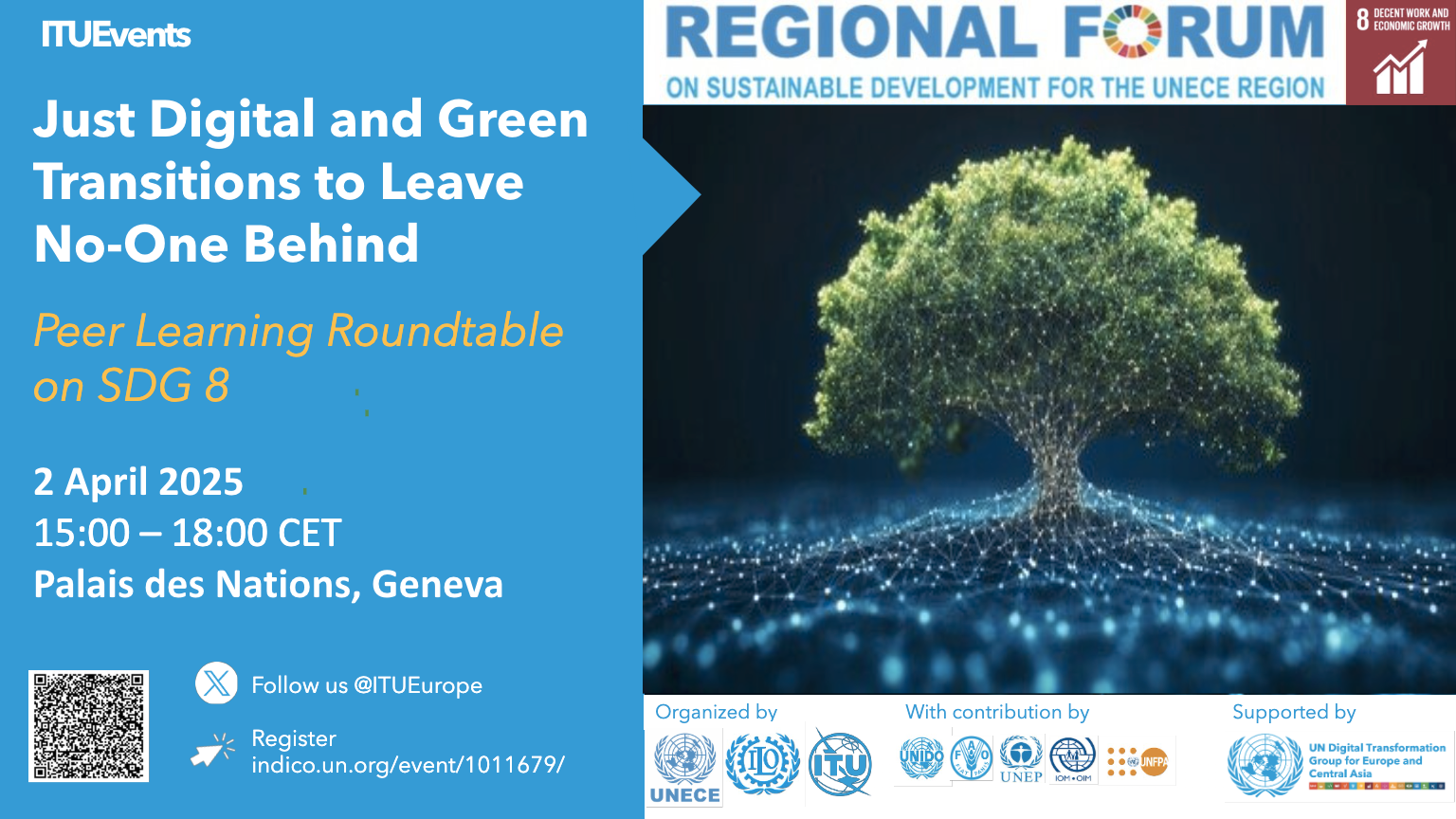
The Roundtable on SDG 8 "Just Digital and Green Transitions to Leave No-One Behind" of the Regional Forum on Sustainable Development for the UNECE Region will take place on 2 April 2025 from 15:00 to 18:00 CET. It will be held in the Palais des Nations room XIX (E Building), in Geneva, Switzerland. The roundtable is organized by the International Labour Organization (ILO), International Telecommunication Union (ITU) and the UN Economic Commission for Europe (UNECE), with contributions from the UN Digital Transformation Group for Europe and Central Asia and other UN agencies.
The UNECE region is undergoing three major structural transformations: digitalization, the green transition, and demographic shifts including migration, which are reshaping labour markets, economic structures, and social protection.
These transitions present opportunities for inclusive and sustainable growth but
also pose challenges for ensuring decent work, fair wages, social protection,
labour rights and equitable economic participation for all.
Key challenges include:
- Boosting economic productivity, competitiveness and innovation
(Targets 8.2;8.3): innovation is a critical component in driving green and
digital transformations. It extends beyond the generation of new products
and processes to larger transformations in the economic and social
ecosystem.
- Decoupling economic growth from environmental degradation (Target
8.4).
- Restructuring many industries, creating new green jobs and economic
opportunities while mitigating employment risks workers are exposed
to (Targets 8.5.2, 8.6.1).
- Bridging digital skills gaps (Targets 8.5.2, 8.6.1): Rapid digitalization is
widening skill gaps, particularly among youth, women, older workers,
migrants and displaced people, and vulnerable groups.
- Ensuring fair access to digitalization (Targets 8.2.1, 8.3.1): Ensure
technological upgrading and innovation by expanding digital infrastructure,
particularly in rural and underserved areas, to prevent economic exclusion.
- Safeguarding decent work in the digital economy (Targets 8.8.1, 8.8.2):
With the rise of platform work and automation, employers and workers face
2
great challenges ahead, especially for those in non-traditional employment
arrangements with women, young people and migrants being the most
affected by this phenomenon.
- Addressing labour shortages caused inter alia by current
demographic shifts, further exacerbated by scarce skills recognition
policies and pathways for safe, orderly and regular labour migration to the
region.
This peer learning session will explore policy responses, national case studies,
and innovative approaches to supporting a just digital and green transition, while
ensuring economic inclusion, social protection, and lifelong learning opportunities
for all workers.